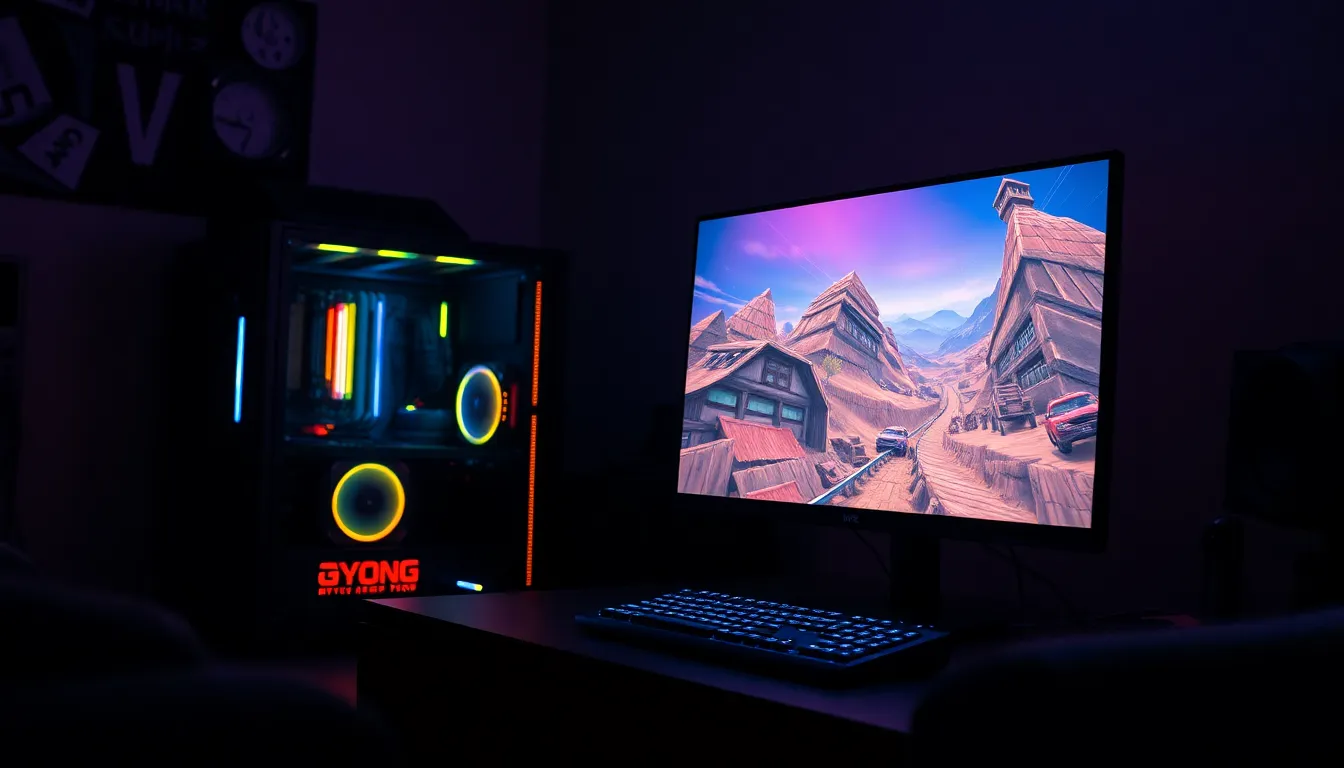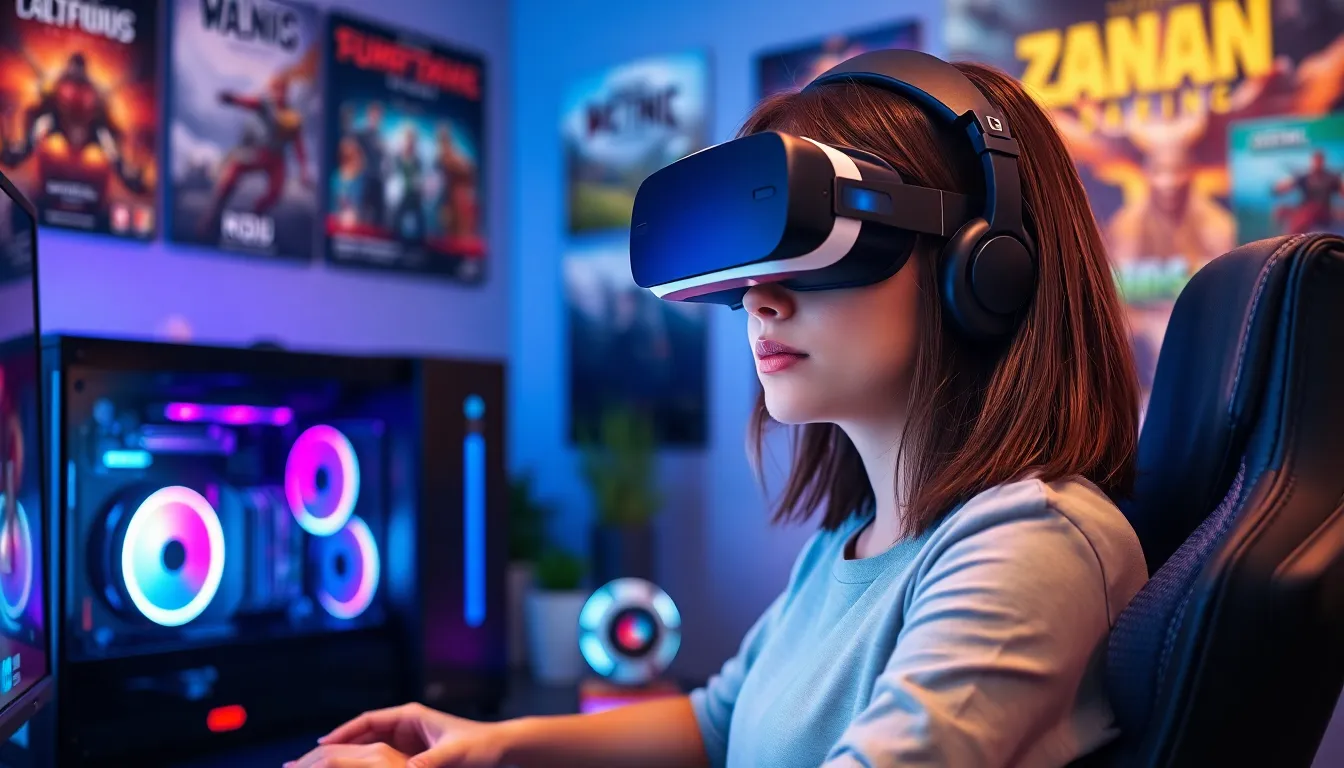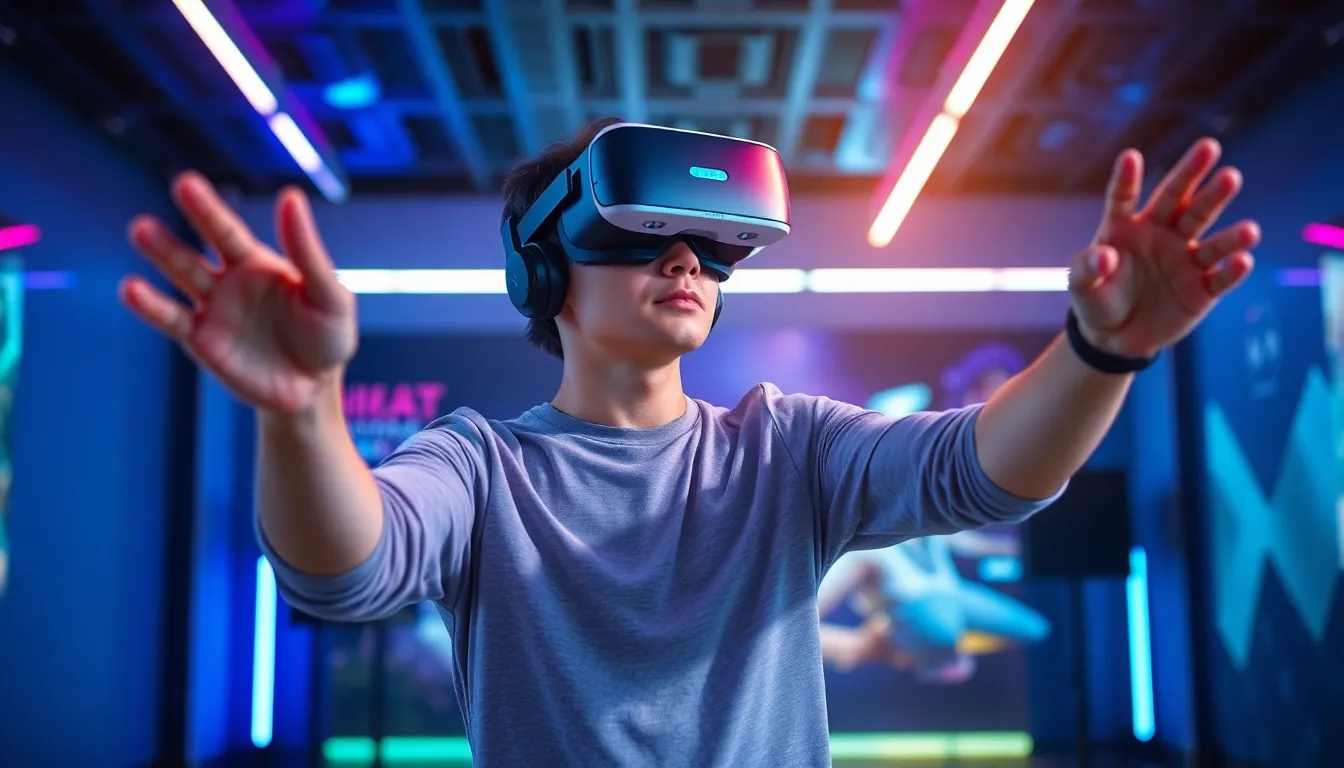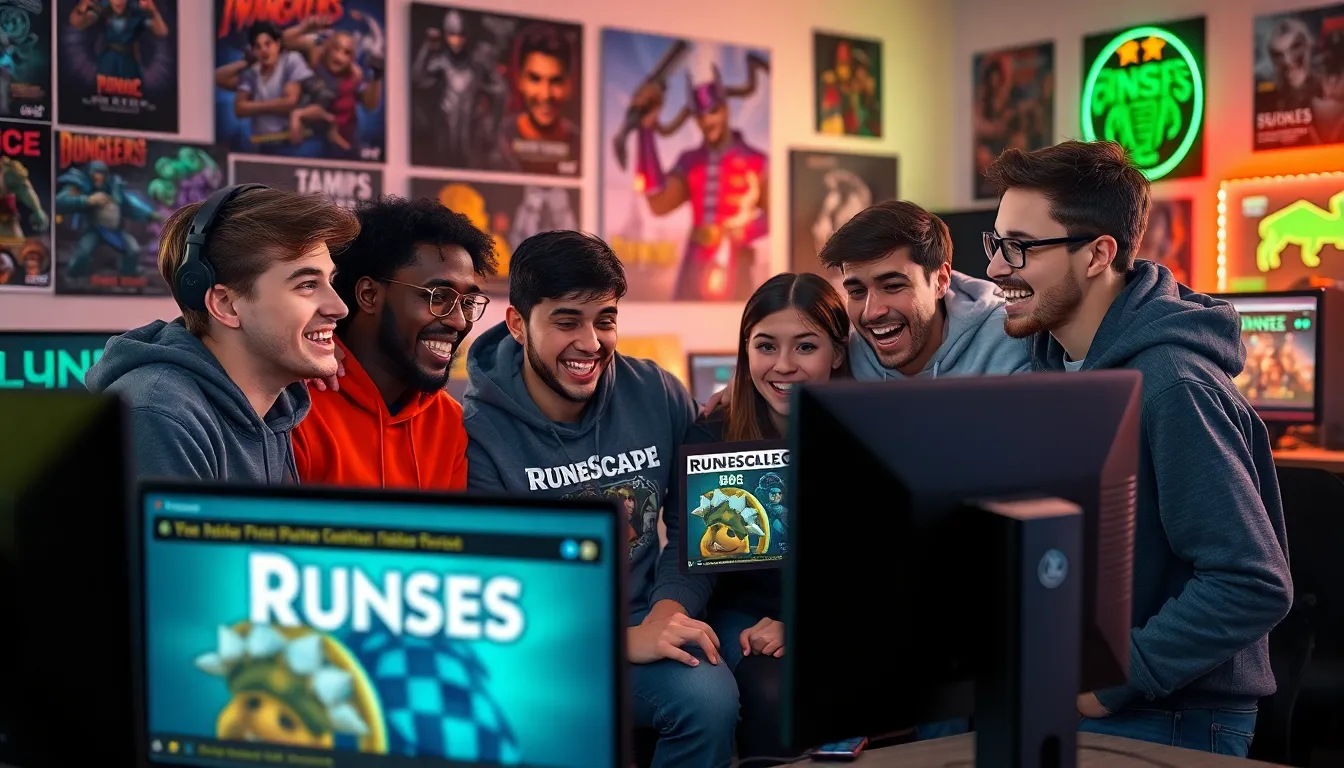In the ever-evolving world of gaming, virtual reality isn’t just a buzzword—it’s a whole new universe waiting to be explored. Imagine strapping on a headset and diving into realms where dragons soar and space battles rage. But before embarking on this epic journey, one crucial piece of gear stands between gamers and their VR dreams: a VR-ready gaming PC.
Table of Contents
ToggleWhat Is a VR Ready Gaming PC?
A VR-ready gaming PC stands out as a powerful machine specifically designed for an immersive gaming experience. These systems feature high-end components, ensuring smooth performance in virtual reality environments.
Definition and Features
VR-ready gaming PCs must meet specific hardware requirements. They typically include powerful graphics cards, such as NVIDIA GeForce RTX 30 series or AMD Radeon RX 6000 series, capable of rendering complex graphics. Processors like Intel i7 or AMD Ryzen 7 are essential for processing intensive applications. Memory should be at least 16 GB of RAM to handle multiple tasks seamlessly. Storage solutions often involve SSDs for faster load times, improving the overall experience when engaging with VR content.
Importance for Gaming
Having a VR-ready gaming PC significantly enhances gaming experiences. It allows players to fully engage in immersive worlds without lag or performance issues. Access to high-definition visuals adds to realism, increasing enjoyment. Compatibility with leading VR headsets, like Oculus Rift or HTC Vive, ensures a smooth connection. Gamers can explore expansive virtual worlds or participate in competitive multiplayer sessions, making VR gaming a remarkable experience.
Key Components of a VR Ready Gaming PC

A VR-ready gaming PC consists of essential components designed for an immersive experience. The choice of parts plays a critical role in delivering high-quality visuals and smooth performance.
Graphics Card
A top-tier graphics card significantly enhances VR gaming. NVIDIA’s GeForce RTX 30 series and AMD’s Radeon RX 6000 series serve as benchmarks for graphics prowess. These cards support advanced rendering techniques and high frame rates, necessary for maintaining immersion during gameplay. The minimum requirement typically includes a model capable of handling 90 frames per second or better. Keeping graphics settings high results in stunning visuals, creating more lifelike environments and reducing motion sickness.
Processor
A powerful processor ensures seamless performance in demanding VR applications. Intel’s i7 series and AMD’s Ryzen 7 series are well-regarded choices for a VR-ready build. These processors provide multiple cores and threads, optimizing the handling of heavy tasks while running VR software. The base clock speeds and boost capabilities of these CPUs help maintain high performance under load. When players experience complex simulations and intricate graphics, a robust processor helps avoid lags or system slowdowns.
Memory and Storage
Ample memory and fast storage significantly contribute to a smooth VR experience. A minimum of 16 GB of RAM supports multitasking and prevents bottlenecks during gaming sessions. Faster RAM speeds can further improve performance in VR settings. Additionally, utilizing an SSD rather than an HDD enhances load times and provides quicker access to game files. It helps deliver seamless transitions between reality and the virtual environments of games, ensuring a fluid and engaging gameplay.
Building vs. Buying a VR Ready Gaming PC
Choosing between building a VR-ready gaming PC and buying a pre-built system influences performance, customization, and cost. Each option has distinct benefits and drawbacks.
Advantages of Building Your Own
Building a VR-ready gaming PC allows for complete customization to meet specific gaming needs. Users can select high-end components that match desired specifications. This option often reduces costs compared to purchasing a pre-built system with similar capabilities. Increased knowledge about hardware can enhance troubleshooting skills. Additionally, assembling a PC offers the chance to select components that align with future upgrades. Gamers often find satisfaction in creating a machine tailored to their preferences.
Pros and Cons of Pre-built Systems
Pre-built systems offer convenience and immediate setup, appealing to those who want a ready-to-go solution. These machines typically come with warranties, providing peace of mind in case of hardware issues. However, limited customization options exist, which might not satisfy every gamer’s requirements. Pre-built systems may come at a premium price compared to building the same performance level independently. Performance may also vary, as manufacturers might choose less optimal components for cost-cutting. Ultimately, the choice depends on balancing immediate usability and long-term flexibility.
Recommended VR Ready Gaming PCs
Exploring high-quality VR-ready gaming PCs provides gamers with options tailored for varying budgets and performance needs. Each choice enhances the virtual reality experience.
High-End Options
Top-tier VR-ready gaming PCs often feature the latest components, ensuring maximum performance. The Alienware Aurora R14, with an AMD Ryzen 9 processor, NVIDIA GeForce RTX 3090 graphics card, and 32 GB of RAM, excels in handling demanding VR applications. This system produces stunning visuals and maintains high frame rates. Similarly, the ASUS ROG Strix GA15 boasts an AMD Ryzen 7 and an NVIDIA GeForce RTX 3080, offering an immersive gaming environment. Both systems operate seamlessly with leading VR headsets, guaranteeing an engaging experience.
Budget-Friendly Choices
Affordable VR-ready gaming PCs deliver performance without breaking the bank. The HP Pavilion Gaming Desktop is a notable option, featuring an AMD Ryzen 5 processor, NVIDIA GTX 1660 graphics card, and 16 GB of RAM. This combination allows users to enjoy various VR titles smoothly. Additionally, the Dell G5 Gaming Desktop provides an Intel i5 processor and NVIDIA GTX 1650, supporting many popular VR games. Each option ensures gamers access to the virtual reality landscape while keeping costs manageable.
Investing in a VR-ready gaming PC is crucial for anyone eager to dive into the captivating world of virtual reality. With the right components like high-end graphics cards and powerful processors gamers can experience unparalleled immersion and stunning visuals.
Choosing between building a custom PC or opting for a pre-built system allows gamers to tailor their experience to their preferences and budget. Whether it’s a high-end rig or a more affordable option each choice can lead to thrilling adventures in VR.
As technology continues to advance the possibilities within virtual reality will only expand making now the perfect time to upgrade to a VR-ready gaming PC.








